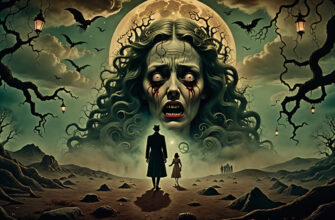Ever wake up from a dream where you were wildly happy—like, sunshine-blasting-through-your-face happy—and then wonder why it rattled you all day? Dreams about happiness can hit harder than the real thing, especially when life feels… less than light. That joy might be real in the dreamscape, but it can clash with reality in ways that leave you questioning everything.
It’s not just about “a nice dream.” People often go searching for the meaning behind these dreams when life feels emotionally flat or unfulfilled. Maybe they’re hoping it’s a cosmic teaser for good things ahead. Or maybe they wake up and feel like an emotional emptiness just got exposed. Either way, something stirs under all that dream-light.
For many, the dream isn’t just about feeling happy—it’s about needing to feel seen, safe, or whole. It can spark questions like, “Why did that dream feel better than real life?” and “What am I missing—or avoiding—while awake?”
These dreams pull emotional threads. Some are frayed. Some are healing. All are honest.
What Does Dreaming Of Happiness Really Mean?
If a dream leaves you crying happy tears or waking up with a smile you can’t explain, you’re not alone. Happiness dreams often show up when the real world feels muted or tangled—like life’s on pause and your emotions are bottled up tight.
There’s something almost supercharged about the joy in these dreams. It’s sharper, louder, more vivid than most real-life wins. That’s part of what makes them feel so magical—and so painful when morning hits. Sometimes, the contrast slaps. Why did you only feel that good in your sleep?
Most people looking into this kind of dream are doing it because something’s off in their waking life:
- They feel disconnected from meaning or joy
- They’re hungry for hope and wonder if this is a preview of better days
- They’re secretly struggling with self-worth or wondering if healing is even possible
These dreams aren’t shallow—they’re a mirror. And sometimes, they reflect more than you expect.
Emotional And Psychological Layers Of Happiness Dreams
These dreams go way beyond surface-level feel-good scenes. When someone dreams of happiness, there’s often something much deeper being worked through under the surface.
In some cases, joy in a dream is actually your subconscious being sneakily honest about your pain. It’s like your mind is finally letting the mask drop—but in a safe, soft way. That wave of happiness might not just be joy; it could be grief that needs a place to breathe.
Or maybe it’s relief. You dream of happiness not because you’re joyful, but because you’re overwhelmed in real life. The dream acts like a mental pressure valve—just enough serenity to keep you from breaking.
Your brain is always trying to fix emotional stuff you haven’t dealt with. You don’t need to approve or even be aware—it’s happening anyway, and dreams are part of that backstage repair process. When joy bursts through in your sleep, it might be your emotional core screaming: “I’m tired. I need peace.”
Connections to past trauma are common in happiness dreams, too. Think of dreams where you’re wrapped in a loved one’s arms you lost years ago, or where everything in life feels safe and whole again. Those moments aren’t accidents—they’re your mind trying to give you the comfort you never got in real life.
Sometimes, dream-happiness is the closure you never received. It’s the apology you should’ve heard. The love that wasn’t safe to feel out loud. And when you wake up missing it, it tells you what’s still raw inside.
Symbolic Themes Often Found In Happiness Dreams
Happiness dreams often bring vivid scenes and details that feel a little too perfect—almost movie-like. That’s not random; it’s emotional symbolism at work.
| Visual Elements | Emotions They Represent |
|---|---|
| Sunshine, warm light | Visibility, warmth, renewal |
| Open fields or beaches | A desire for emotional freedom |
| Flying | Feeling powerful or escaping life’s heaviness |
| Hugging loved ones | Belonging, forgiveness, reconnection |
People who show up in these dreams can carry hidden messages:
- Old pets: lost innocence, comfort that never judged
- Ex-partners or ideal lovers: unmet emotional needs or fantasies
- Childhood homes: craving safety or simpler times
- Imaginary friends or people you’ve never met: emotional placeholders your brain created for connection
Objects also speak:
– Gifts suggest emotional reward or unexpressed desires.
– Golden light might whisper of pure love, healing, or brilliance you forgot you had.
– Music with no lyrics taps into unspoken moods—stuff you haven’t named yet inside yourself.
And when the happiness feels too good to be real? That can sting. Sometimes, those dreams leave a weird aftertaste—like you’ve been tricked. That’s often a red flag of “emotional deprivation mode.” If your subconscious is crafting an emotional paradise every night, you’ve probably been starved too long during the day.
When happiness feels surreal in your dreams, it’s often because it’s been missing far too long in your actual life.
Surprising Meanings Behind “Happy” Dream Motifs
Happiness dreams are not always what they seem. Ever wake up from a dream where life felt perfect—but instead of feeling uplifted, you feel weirdly hollow? That’s not random. Often, these dreams hit deeper than your brain just throwing a party.
Sometimes, a peaceful dream is less about serenity and more about escape. If your soul is staging a calm setting in your dreams, it can mean you feel emotionally unsafe or chaotic in your waking life. Think about it like this: your sleeping mind creates the peace you can’t find when you’re awake.
And celebrations? They’re loud metaphors for an unmet need to be seen or acknowledged. If you’re dreaming of birthdays, weddings, or big happy moments, your subconscious could be screaming: “Notice me. Appreciate me. Let me belong.”
Then there’s the tricky kind of joy—disguised as laughter but hiding something darker. Laughing in a dream right after a real-life breakup could mean you’re bypassing grief. That joke-cracking part of the dream might be a band-aid over a heart that hasn’t let itself cry yet.
Some of the most gut-punch dreams are the ones where you literally have it all in your sleep. You get the love, the job, the freedom—but wake up empty. That emptiness? That’s your real life saying, “Hey, we’re not okay down here.” Because sometimes dream-joy doesn’t soothe—it stings. There might be guilt tucked beneath the bliss, or grief wrapped in your dream’s glow. It’s like your mind gave you a taste of what you want, but didn’t give you the tools to hold onto it in the real world.
What Happiness Dreams Might Be Asking You to Notice
Dreams don’t just decorate your mind at night—they drop hints. Especially when they’re filled with joy, warmth, and scenes that feel almost too perfect. That kind of happiness doesn’t always reflect reality. Sometimes, it’s pointing out what you’ve shoved under the rug.
You might be ignoring wants that are quietly screaming for attention. That could look like passion, intimacy, creativity, or freedom. You’re out here surviving, but your dreaming self is throwing neon signs about what you really miss. Maybe it’s a version of yourself you lost in the hustle—or a connection you’ve stopped chasing because it felt too risky.
Spiritual nudges show up in these dreams too. Some people describe them like déjà vu from a past version of themselves—daydreams they used to have as a kid. They wake with chest-tight urgency, like the universe just whispered, “Go get your life back.”
And sometimes, it’s about people. Happiness dreams can feature lost ones—friends who died, exes who disappeared without closure, or people you loved but never got the chance to say it to. Their presence might be more than memory. It could be a heart-level attempt to heal the “what ifs.”
How to Work with These Dreams
Don’t just let a happiness dream fade when the alarm rings. Write it down raw and messy. Capture what made you smile—and what left you aching. These dreams often hold patterns of what you’ve craved for too long or feared too much to say out loud.
- “Why did I feel safe there?” — That setting might represent the emotional home you’ve lacked.
- “What have I stopped allowing myself to want?” — Ask what made the joy feel impossible or off-limits.
- “Was there someone I was missing?” — Their appearance might spell closure you never gave yourself.
Let these dreams guide, not predict. They’re not text messages from the universe. They’re mirrors. Use them to walk toward what you’ve been avoiding. Real healing starts when you stop ghosting your own desires.








